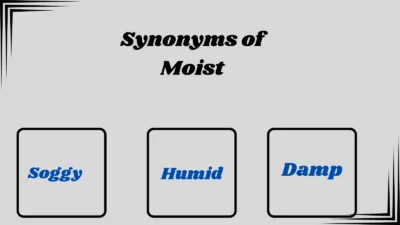Synonyms of attribute are useful when you want to describe a characteristic, feature, or quality in a more precise or varied way. If you’re highlighting someone’s strength, a product’s functionality, or a brand’s uniqueness, the right word can make all the difference.
For example, instead of saying “Leadership is his strongest attribute,” you might say “Leadership is his defining trait” or “Leadership is a key quality he brings.” Each synonym adds a subtle shift in tone or clarity.
In this article, you’ll discover synonyms of attribute — complete with meanings, examples, and usage tips — to help you write with more depth, accuracy, and variety.
What Does Attribute Really Mean?
Let’s start with the basics. The word attribute (noun) refers to a quality or characteristic of someone or something. It’s what defines or distinguishes a person, object, or concept.
- Example:
Kindness is one of her most admirable attributes.
In casual usage, it often implies a positive trait, such as honesty, humility, or intelligence. But in a technical or academic context, it can also refer to data features or properties (especially in fields like programming, design, or data science).
Understanding the core of this word helps in exploring synonyms that may carry similar meanings but add a bit more flavor, emotion, or specificity depending on the situation.
Synonyms of Attribute – Explained and Contextualized
Each synonym here comes with a definition, example sentence, and guidance on when to use it.
1. Trait
Definition: A distinguishing quality, especially of character.
Example: Her patience is a trait I deeply admire.
Use When: Discussing personality or psychological characteristics.
2. Quality
Definition: A feature that defines the nature of something.
Example: The product’s most impressive quality is its durability.
Use When: General contexts—emotional, physical, or abstract qualities.
3. Characteristic
Definition: A feature or property typical of something.
Example: Flexibility is a characteristic of good leadership.
Use When: Describing recurring or essential properties.
4. Feature
Definition: A prominent or notable part of something.
Example: Voice recognition is a new feature in the app.
Use When: Talking about functional or visual components.
5. Aspect
Definition: A particular part or side of something.
Example: The emotional aspect of the story really moved me.
Use When: Analyzing different sides or perspectives.
6. Element
Definition: A part or component of a larger whole.
Example: Creativity is a crucial element of design.
Use When: Emphasizing structure or composition.
7. Facet
Definition: One of many sides or angles of a subject.
Example: Her personality has many fascinating facets.
Use When: Describing complexity in characters or topics.
8. Hallmark
Definition: A distinguishing feature, often of quality.
Example: Precision is the hallmark of his work.
Use When: Highlighting excellence or reputation.
9. Mark
Definition: An indicator or signal of a trait.
Example: His empathy is a mark of true leadership.
Use When: Connecting traits with symbolic or visible signs.
10. Symbol
Definition: Something that represents a concept or quality.
Example: The dove is a symbol of peace.
Use When: Talking figuratively or in literature.
11. Indicator
Definition: A sign that reveals a condition or trend.
Example: A calm demeanor is an indicator of emotional maturity.
Use When: Discussing evidence or symptoms.
12. Sign
Definition: A noticeable attribute that conveys meaning.
Example: Her constant smile was a sign of inner peace.
Use When: Interpreting signals, especially emotionally.
13. Virtue
Definition: A morally good quality.
Example: Honesty is a virtue worth cultivating.
Use When: Referring to ethical or spiritual traits.
14. Value
Definition: An important principle or belief.
Example: Respect is a value we teach our children.
Use When: In philosophical or moral discussions.
15. Idiosyncrasy
Definition: A distinctive or unusual personal trait.
Example: His habit of humming is an idiosyncrasy I find charming.
Use When: Highlighting unique, quirky behaviors.
16. Quirk
Definition: A peculiar behavioral trait.
Example: Her love for pineapple on pizza is quite the quirk.
Use When: Light-hearted or humorous descriptions.
17. Tendency
Definition: A habitual inclination.
Example: He has a tendency to interrupt during meetings.
Use When: Discussing behavioral patterns.
18. Disposition
Definition: A person’s inherent qualities of mind and character.
Example: She has a cheerful disposition.
Use When: Talking about emotional tone or temperament.
19. Temperament
Definition: A person’s nature, particularly as it affects behavior.
Example: His artistic temperament makes him sensitive to criticism.
Use When: Psychological or emotional traits are emphasized.
20. Mannerism
Definition: A habitual gesture or way of speaking.
Example: His eyebrow twitch is a strange mannerism.
Use When: Physical or verbal quirks.
21. Flair
Definition: A natural talent or instinctive style.
Example: She has a flair for drama.
Use When: Creative or stylish abilities.
22. Gift
Definition: A natural ability or talent.
Example: He has a gift for storytelling.
Use When: Describing innate talents.
23. Knack
Definition: A skill acquired through experience.
Example: She has a knack for solving puzzles.
Use When: Casual tone about useful or practical traits.
24. Proclivity
Definition: A natural inclination toward something (often negative).
Example: He has a proclivity for exaggeration.
Use When: Formal or critical tone.
25. Inclination
Definition: A tendency or preference.
Example: She inclines toward solitude.
Use When: More neutral than “proclivity.”
26. Nature
Definition: The inherent qualities of someone or something.
Example: It’s in her nature to be generous.
Use When: Philosophical or reflective contexts.
27. Essence
Definition: The intrinsic quality of something.
Example: The essence of leadership is service.
Use When: Deep or abstract discussions.
28. Core
Definition: The central or most important part.
Example: Integrity lies at the core of his identity.
Use When: Emphasizing foundational traits.
29. Fundamental
Definition: A basic or essential quality.
Example: Trust is a fundamental part of relationships.
Use When: Discussing non-negotiable attributes.
30. Property
Definition: A defined quality, often in science or design.
Example: Conductivity is a property of metals.
Use When: Technical or academic usage.
How to Choose the Right Synonym
Not every word fits every situation. Here’s a simple breakdown of how to choose based on tone and context:
Emotional vs. Neutral
- Emotional/Personal: Virtue, disposition, temperament, quirk, idiosyncrasy
- Neutral/Analytical: Characteristic, feature, element, property
Formal vs. Informal
- Formal: Attribute, proclivity, essence, hallmark
- Casual: Trait, knack, quirk, flair
Abstract vs. Tangible
- Abstract: Core, value, inclination, nature
- Concrete: Feature, property, mark
Cultural and Emotional Contexts
Words like virtue or value can carry moral weight in certain cultures. In contrast, quirk or mannerism may be more acceptable in Western casual conversation but misunderstood elsewhere. It’s crucial to consider the audience’s background—what’s charming in one context may seem off-putting in another.
Conclusion:
The word attribute is just the tip of the vocabulary iceberg. With these 30 alternatives, you’re now equipped to describe traits, qualities, and features with more precision, emotion, and context sensitivity.
Whether you’re writing a character sketch, a product review, or a philosophical essay, the right synonym will elevate your expression and connect better with your audience.
So next time you’re tempted to type “attribute” for the tenth time in a paragraph, scroll through this list and match your meaning to your moment.



